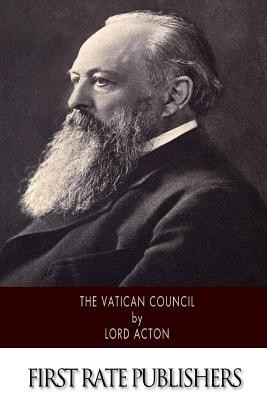
- We will send in 10–14 business days.
- Author: Lord Acton
- Publisher: CreateSpace Independent Publishing Platform
- Year: 2014
- Pages: 40
- ISBN-10: 1502581078
- ISBN-13: 9781502581075
- Format: 15.2 x 22.9 x 0.2 cm, minkšti viršeliai
- Language: English
- SAVE -10% with code: EXTRA
Reviews
Description
"All power tends to corrupt, and absolute power corrupts absolutely." - Lord Acton John Emerich Edward Dalberg-Acton, 1st Baron Acton, KCVO, DL (10 January 1834 - 19 June 1902), is better known as Sir John Dalberg-Acton and usually referred to simply as Lord Acton. Lord Acton was an English Catholic historian, politician, and writer born into a family full of nobility. Acton spent much time in the chief intellectual centers of Europe and in the United States, making friends with Tocqueville, Fustel de Coulanges, Bluntschli, von Sybel and Ranke. As a result, Lord Acton wrote at length about current events, history, politics, and more. Moreover, Acton took a great interest in America, considering its Federal structure the perfect guarantor of individual liberties. During the American Civil War, his sympathies lay entirely with the Confederacy, for their defense of States' Rights against a centralized government that, by all historical precedent, would inevitably turn tyrannical. His notes to Gladstone on the subject helped sway many in the British government to sympathize with the South. After the South's surrender, he wrote to Robert E. Lee that "I mourn for the stake which was lost at Richmond more deeply than I rejoice over that which was saved at Waterloo," adding that he "deemed that you were fighting battles for our liberty, our progress, and our civilization."
- Author: Lord Acton
- Publisher: CreateSpace Independent Publishing Platform
- Year: 2014
- Pages: 40
- ISBN-10: 1502581078
- ISBN-13: 9781502581075
- Format: 15.2 x 22.9 x 0.2 cm, minkšti viršeliai
- Language: English English
"All power tends to corrupt, and absolute power corrupts absolutely." - Lord Acton John Emerich Edward Dalberg-Acton, 1st Baron Acton, KCVO, DL (10 January 1834 - 19 June 1902), is better known as Sir John Dalberg-Acton and usually referred to simply as Lord Acton. Lord Acton was an English Catholic historian, politician, and writer born into a family full of nobility. Acton spent much time in the chief intellectual centers of Europe and in the United States, making friends with Tocqueville, Fustel de Coulanges, Bluntschli, von Sybel and Ranke. As a result, Lord Acton wrote at length about current events, history, politics, and more. Moreover, Acton took a great interest in America, considering its Federal structure the perfect guarantor of individual liberties. During the American Civil War, his sympathies lay entirely with the Confederacy, for their defense of States' Rights against a centralized government that, by all historical precedent, would inevitably turn tyrannical. His notes to Gladstone on the subject helped sway many in the British government to sympathize with the South. After the South's surrender, he wrote to Robert E. Lee that "I mourn for the stake which was lost at Richmond more deeply than I rejoice over that which was saved at Waterloo," adding that he "deemed that you were fighting battles for our liberty, our progress, and our civilization."


Reviews